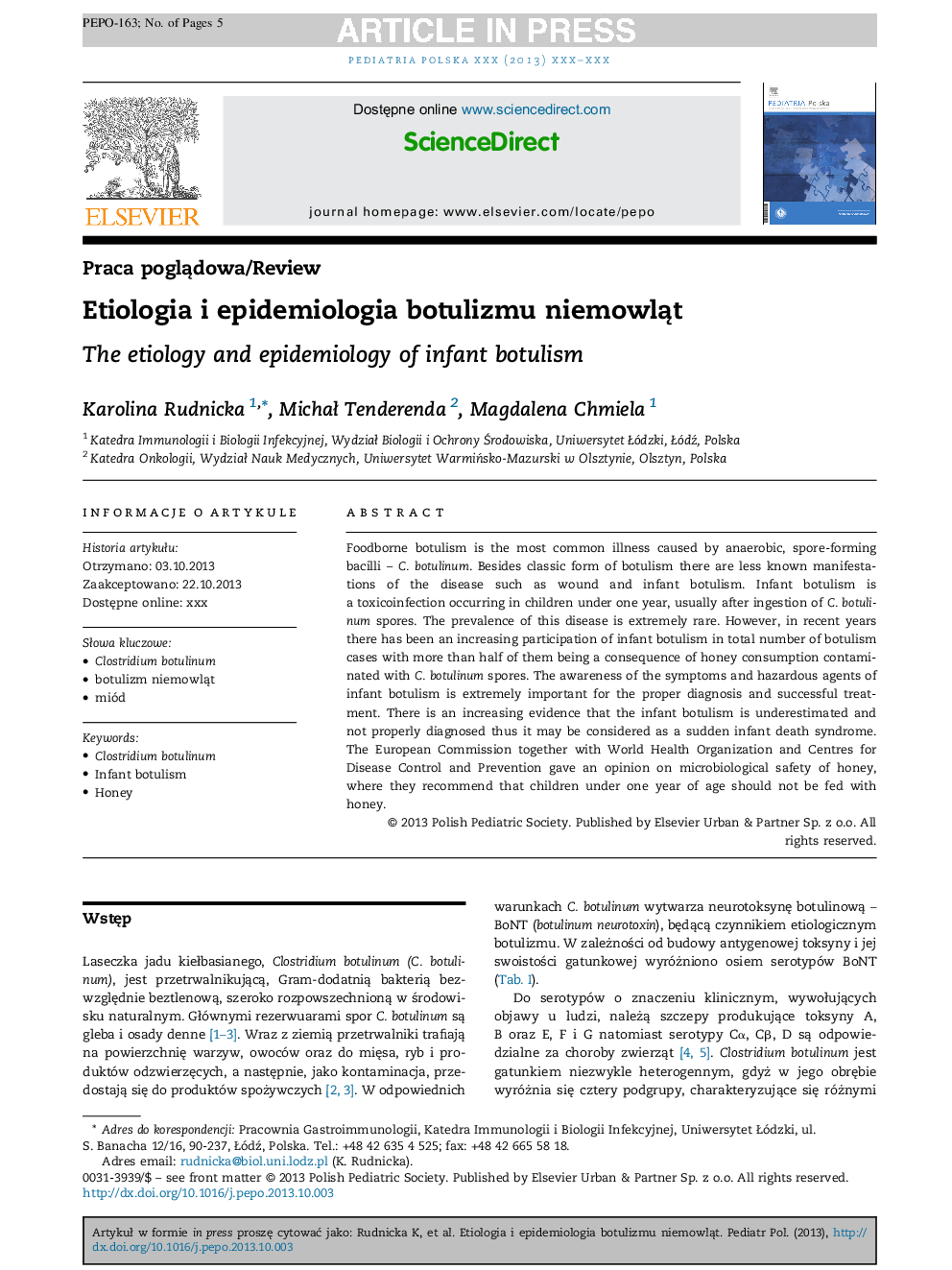| Article ID | Journal | Published Year | Pages | File Type |
|---|---|---|---|---|
| 10163332 | Pediatria Polska | 2014 | 5 Pages |
Abstract
Foodborne botulism is the most common illness caused by anaerobic, spore-forming bacilli - C. botulinum. Besides classic form of botulism there are less known manifestations of the disease such as wound and infant botulism. Infant botulism is a toxicoinfection occurring in children under one year, usually after ingestion of C. botulinum spores. The prevalence of this disease is extremely rare. However, in recent years there has been an increasing participation of infant botulism in total number of botulism cases with more than half of them being a consequence of honey consumption contaminated with C. botulinum spores. The awareness of the symptoms and hazardous agents of infant botulism is extremely important for the proper diagnosis and successful treatment. There is an increasing evidence that the infant botulism is underestimated and not properly diagnosed thus it may be considered as a sudden infant death syndrome. The European Commission together with World Health Organization and Centres for Disease Control and Prevention gave an opinion on microbiological safety of honey, where they recommend that children under one year of age should not be fed with honey.
Related Topics
Health Sciences
Medicine and Dentistry
Dermatology
Authors
Karolina Rudnicka, MichaÅ Tenderenda, Magdalena Chmiela,
